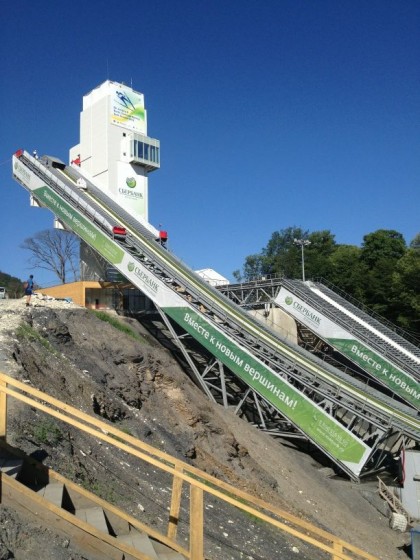
Note: On Saturday, WADA decided to discipline the Moscow Antidoping Center in the form of a pending six-month suspension, according to Play True Magazine.
The World Anti-Doping Agency (WADA) discovered a major snafu this week in the leadup to the 2014 Winter Olympics when it rendered Moscow’s antidoping laboratory — responsible for testing Olympians via its satellite lab in Sochi — sub-standard.
According to the New York Times, “a team of laboratory experts reported those findings to officials at the antidoping agency and recommended that the lab be stripped of its accreditation.”
While WADA President John Fahey didn’t explain specifics on Friday, antidoping officials familiar with the Moscow lab said it produced false-positive tests during a routine evaluation process, and failed to identify samples with banned drugs, the Times reported.
Fahey told reporters he would decide whether or how to discipline the lab, the only one capable of administering such tests in Russia. If WADA revokes its accreditation, the agency, International Olympic Committee and Sochi Olympic organizers will have to come up with an alternate plan — quick.
Arne Ljungqvist, chairman of the International Olympic Committee’s medical commission and a vice president of the antidoping agency, told the Times it would be impossible for the drug tests from Sochi to be sent out of the country and processed fast enough. The Washington Post reported that if they were able to do so, the financial burden would likely be on local organizers.
For Rio de Janeiro, the host of next year’s FIFA World Cup, being stripped of their antidoping accreditation means FIFA will have to send samples to Lausanne, Switzerland, next summer.
(Ljungqvist told the Times that Rio’s case is different because so few players are tested after each game, compared to the Olympics, where a higher number of athletes will tested. The IOC plans to administer 2,457 tests before and during the Games.) Regardless, Fahey aimed to ease concerns.
“Look, I am very confident that irrespective of what is in that report, there will be a very effective anti-doping program associated with the winter Olympics in Sochi next year,” Fahey told the Post. “I have no doubt that will occur.”
With the Sochi Games estimated to cost Russia upwards of $50 billion, if the nation invests more than $16 million in an antidoping facility like London did for the 2012 Summer Olympics, there’s not enough time to get it up and effectively running.
“People would need to be in place there well in advance of the Games,” former WADA chairman Dick Pound told the Times. “A problem like this cannot be solved overnight.”



